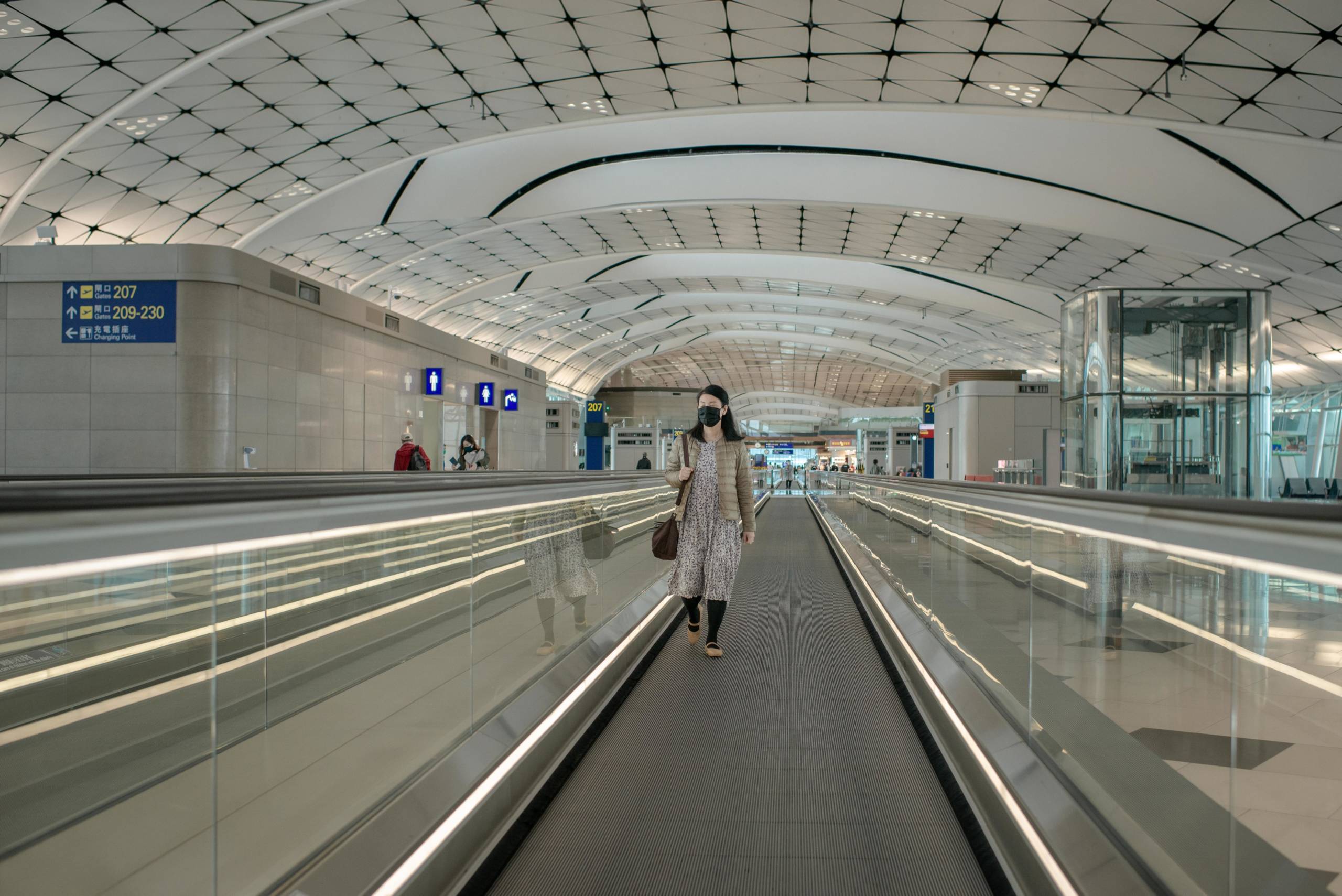How a global outbreak has left the travel industry reeling
It's been more than a month since the city of Wuhan, China was put on mandatory lockdown in an attempt to curb the novel coronavirus from China, now known as the COVID-19 virus. And though extensive precautions have been taken — quarantines of entire cities; hundreds of flights canceled and suspended; cruise ships rerouted to less troubled waters through the end of the year — the virus has continued to spread.
Visit TPG's guide to all coronavirus news and updates
At this time, there are major outbreaks in China, Japan, South Korea and Italy, and coronavirus cases, now exceeding 83,000 worldwide, have been confirmed on all continents except for Antarctica. The death toll is nearing 3,000, and has made troubling appearances in Nigeria, plus California, Oregon and Washington where the cases are not linked to any known risk factors, such as travel.
On Thursday, Feb. 27, the World Health Organization (WHO) and the World Tourism Organization (UNWTO) issued a joint statement, asking travelers to take a thoughtful response to the situation. "WHO did not recommend any travel or trade restriction" the statement said, "[and] health measures [should] be implemented in ways that minimize unnecessary interference with international traffic and trade."
By Friday, however, WHO had upgraded its global risk warning to "very high" — the most extreme warning before declaring the outbreak an actual pandemic. WHO also recommends against travel if you have both a fever and a cough.
Even if the situation were to deescalate overnight, the ramifications for the travel industry could still be extensive. Here's what travelers need to know about the state of travel during the coronavirus crisis.
For more TPG news delivered each morning to your inbox, sign up for our daily newsletter.
Demand for flights dries up
Samantha S., of San Francisco, California, had plans to spend 15 days in Thailand with her boyfriend in mid-February. But a few weeks before the outbound flight, as the coronavirus outbreak escalated, the two began looking into changing their flights.
"I was worried, because I tend to get sick very easily, and with what they were saying about [the] incubation period of the virus, I was worried I would show symptoms around the time we were heading home and get quarantined in Asia."

Ultimately, Samantha decided to call off their trip. But it turned out the airline, China Southern, had already canceled the flight, which connected through Wuhan.
China Southern is just one of nearly two dozen Chinese carriers providing full refunds to travelers who had made plans to transit through China.
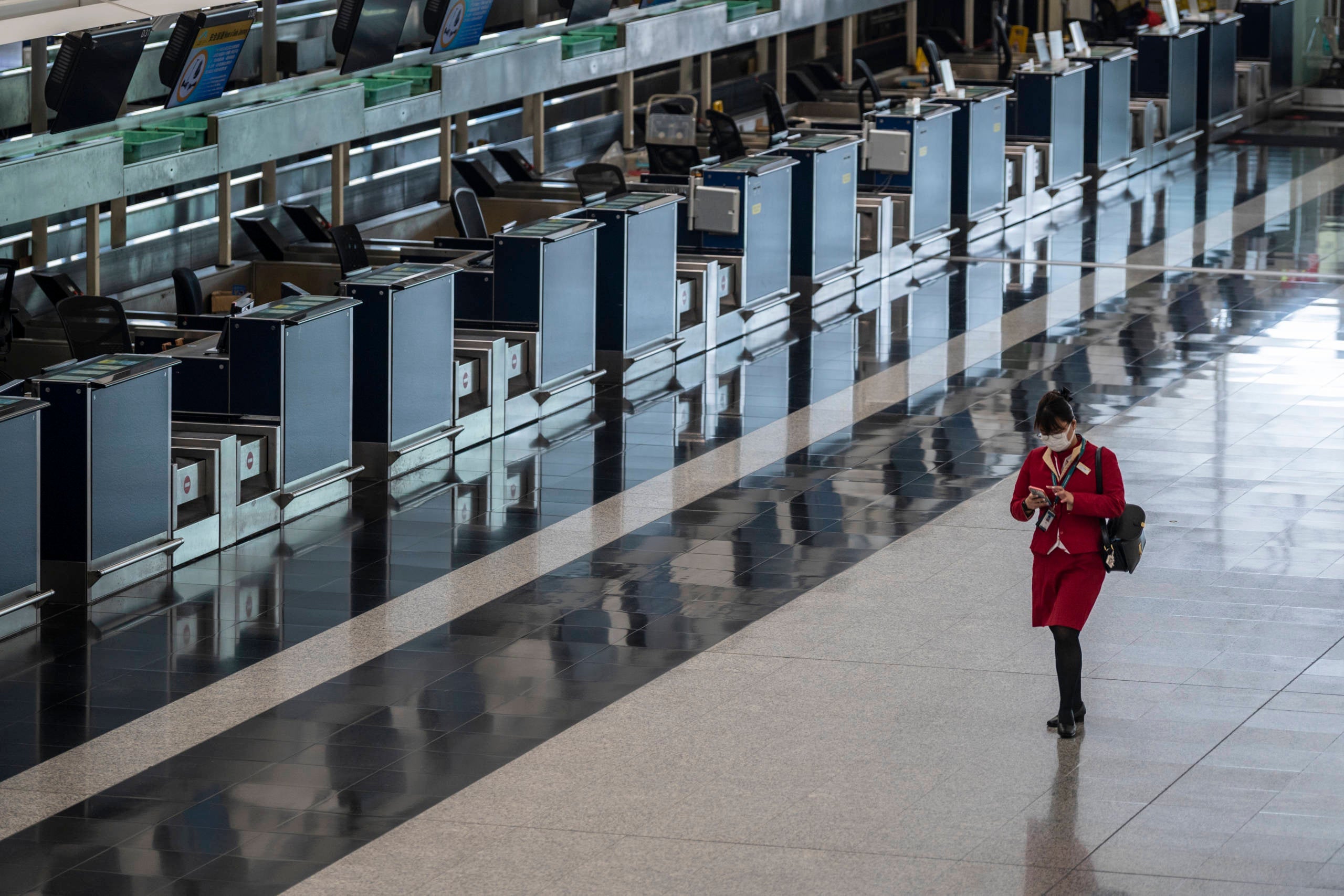
Demand to China has entirely dried up for U.S. carriers, too, all of which have suspended flights to China and Hong Kong through at least April. But though the worst of the outbreak is still largely concentrated in China, outbreaks in Japan, South Korea and Italy have led to additional air travel changes.
Delta Air Lines, for example, announced on Wednesday it would suspend service between Seoul (ICN) and Minneapolis/St. Paul (MSP) from Feb. 29 through April 30. The airline is also reducing service between Seoul and other major U.S. cities through April 30. Hawaiian made a similar announcement a few hours later, suspending its five-times-weekly service between Honolulu (HNL) and Seoul from March 2 through April 30.
Other carriers are waiving change and cancellation fees for customers on upcoming South Korea flights, as well as reducing service or waiving change fees for flights to Japan, South Korea, Italy and Singapore.
Some airlines, in an effort to appeal to understandably nervous travelers, are offering generous new cancellation policies. JetBlue is waiving change and cancellation fees on new flights booked between Feb. 27 and March 11. Customers who cancel their flights will be issued a credit. Alaska is waiving change and cancellation fees on all flights in its network for travel booked between Feb. 27 and March 12. All changes must be made by March 12, and passengers will receive credit for future travel, with one year to use it from the date the credit is issued.
If coronavirus persists, it's likely the waivers will be extended and additional flights will be canceled. And there's no doubt there could be serious financial implications for the airlines. Industry analysts suspect coronavirus may be a harbinger that the recent era of airline expansion could be at an end.
Jet fuel prices have plunged to two-year lows, according to FlightGlobal, and airlines are already pulling back profit forecasts. The situation is so uncertain and volatile right now, it's still impossible to predict where the bottom is. In North America, airlines may have some ability to limit exposure to China, though as the virus spreads, the story becomes much more global. Additionally, regional carriers in China and elsewhere in Asia may not be able to absorb the losses from that hard-hit region. Coronavirus-related cancellations and route suspensions could tip already struggling airlines over the edge into insolvency.
Related: Complete guide to traveling during the deadly coronavirus outbreak
And Samantha's concerns about getting quarantined are not unfounded. Travelers flying abroad seem to be increasingly at risk for being quarantined, rerouted or, at least, enduring additional screening procedures.
"There is already screening for [travelers] coming into the United States ... who have been in China in the last 14 days. This will be expanded to Italy and South Korea. Additionally, we are currently working on exit screening from South Korea, Italy and other European nations as needed," Katie Miller, spokesperson for Vice President Mike Pence, told CNN over the weekend.
Hotel rooms sit empty
"We had four hotels, all Marriott properties, booked [with] points in Thailand," Samantha told TPG. "With their generous cancellation policy, I was able to cancel all of our reservations for a full refund."
Marriott's cancellation and change fee waivers are in place for guests traveling to, or based in, China, Hong Kong, Macau, Taiwan, South Korea, Japan and Italy. To help travelers whose plans have been interrupted by the outbreak, Marriott announced on Friday it will also extend elite membership status for all its tiers from February 2020 to 2021. Eligible members include those whose addresses were located in mainland China, Hong Kong, Macau and Taiwan as of Feb. 1, 2020.
During an earnings call back on Feb. 11, 2020, Hilton CEO and President Christopher Nassetta said approximately 33,000 hotel rooms across 150 properties in China have been closed because of the coronavirus. And Hilton is now waiving cancellation and rebooking fees for guests traveling to or from Greater China, Italy, South Korea and Saudi Arabia.
The brand also announced that all Hilton Honors members who had not achieved elite status requirements in 2019 and would have been downgraded on March 31, 2020, will now have an extension until March 2021. Similarly, those whose status is set to expire in 2021 will now have a new expiration date of 2022.
Hyatt also has a change and cancellation fee waiver in place to cover travelers bound for China, South Korea, Japan and Italy, and the brand said it will be extending elite status and tier benefits for all members in the Asia-Pacific region.
Many other hotel brands and airlines are offering elite status extensions, too.
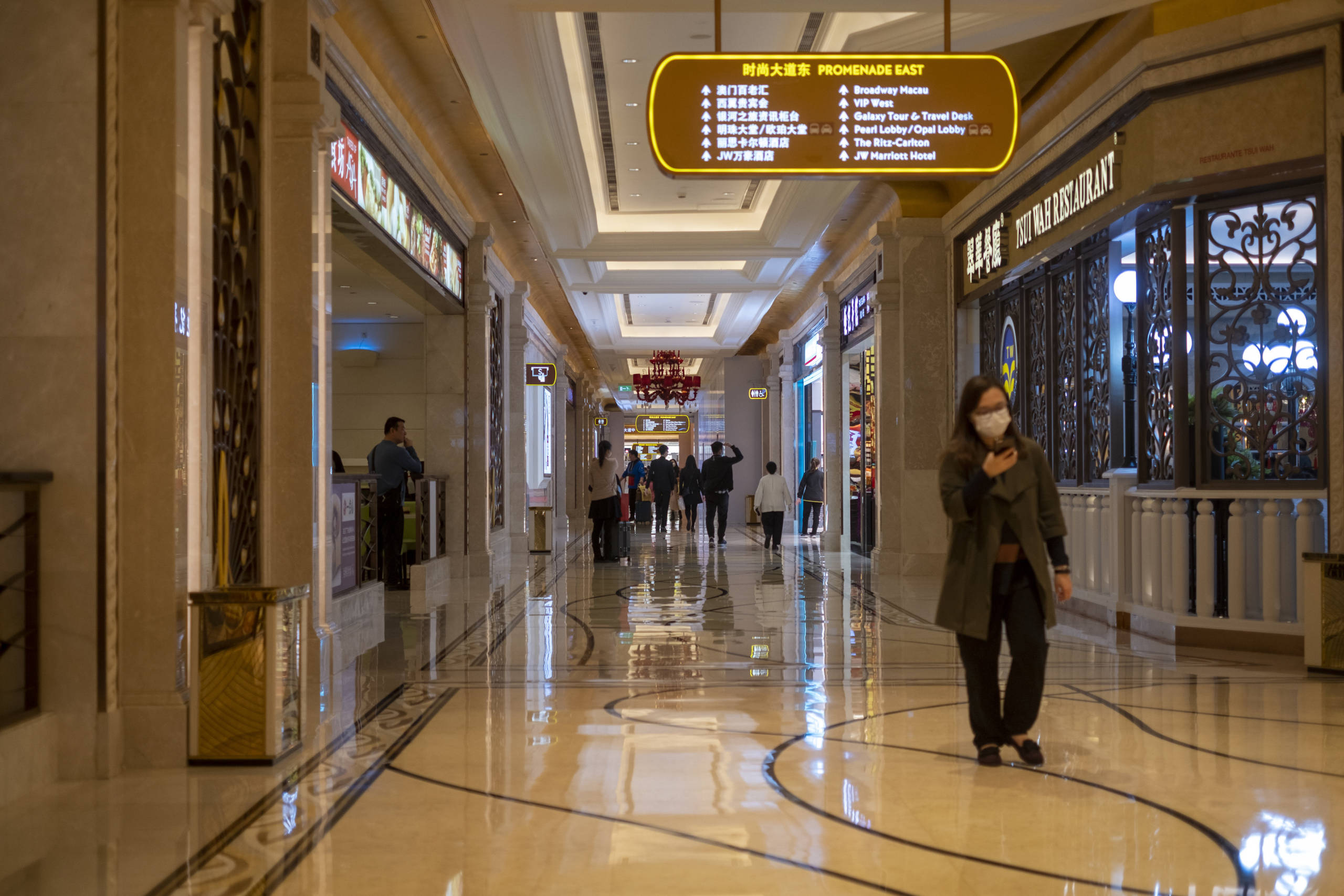
As a result of all the empty rooms, hotel companies have reported unsettling figures.
Marriott's revenue per available room across the entire Asia Pacific region is down approximately 50% year over year in February, according to Skift. And in that aforementioned earnings call, Hilton's Nassetta said that, should the situation escalate for another three to six months, the hotel chain could lose $25 to $50 million in earnings (before interest, taxes, depreciation and amortization) by the time bookings bounce back.
But, even closer to home, hotel profits are suffering. According to a weekly review of hotel performance by STR, U.S. airport hotels reported a nearly 5% decrease in occupancy during the week of Feb. 16 to 22. It's the steepest decline of all location types.
"The obvious question is whether a dip in demand in airport hotels was directly connected to the coronavirus outbreak," said Jan Freitag, STR's senior vice president of lodging insights, according to Hotel News Now. Freitag said a week's worth of data simply wasn't enough to draw conclusions, but added that, "we do expect to see a coronavirus impact in U.S. hotel performance data, especially in gateway cities that have historically seen a large number of Chinese arrivals."
Related: How to ward off coronavirus in your hotel room
Cruise ships leave the rough seas
Few sectors of the travel industry have been upended quite like the cruise industry. Lines have canceled or significantly altered more than 100 sailings in Asia, with some lines entirely leaving the market until at least next year.
But perhaps the line hardest hit by the outbreak has been Princess Cruises, which saw one of its Asia-based ships, Diamond Princess, put under a two-week quarantine off the coast of Japan. Ultimately, more than 600 passengers and crew members were sickened by the COVID-19 disease.
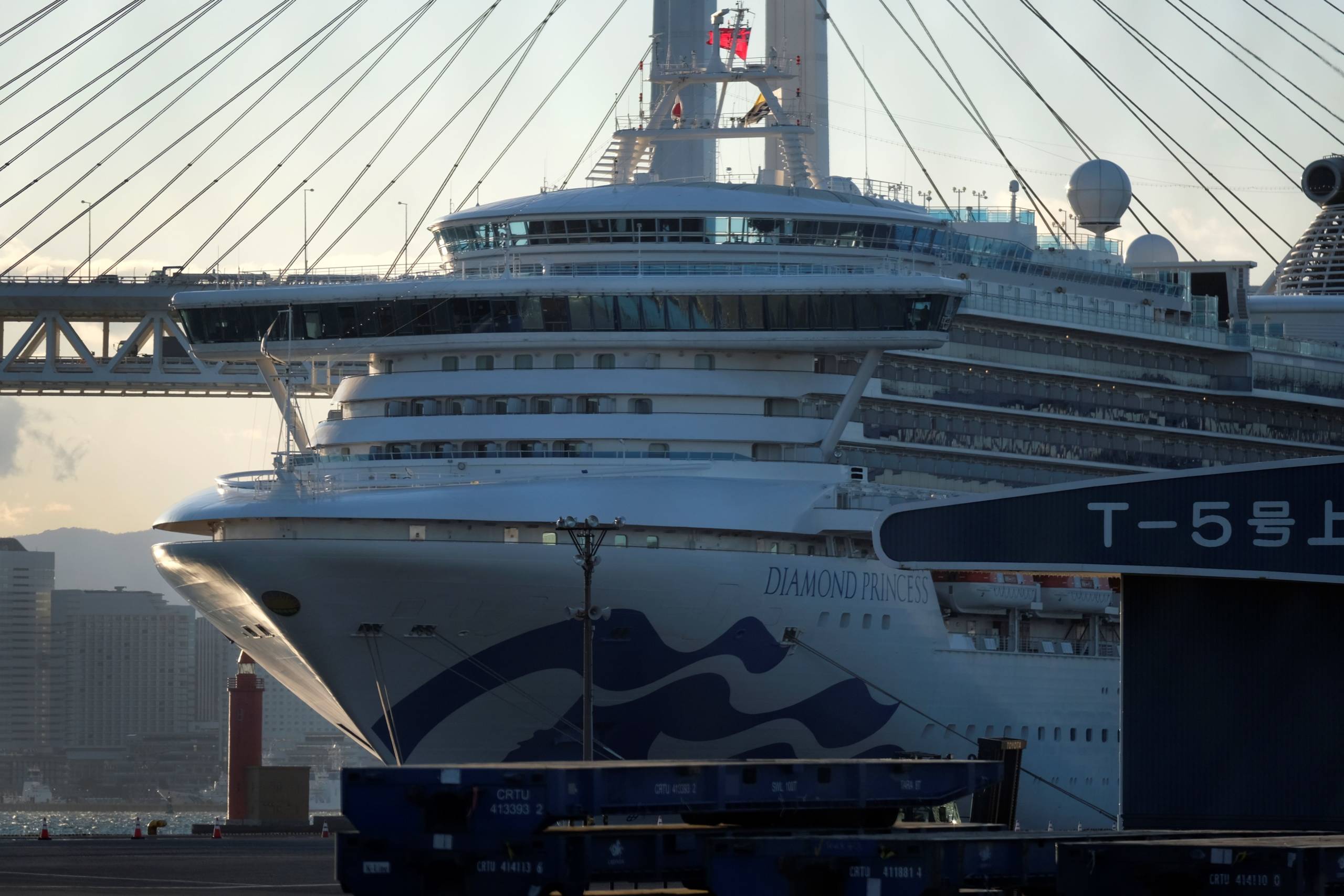
Coronavirus began to spread during the cruise industry's peak booking period, known to many as Wave Season. The window typically stretches from January to March, and bookings are down across all markets, including regions as far away from the outbreak's epicenter as the Caribbean. During a time when travelers are typically planning and booking cruises for the late 2020 and 2021 season, reservations have plunged.
Related: Booked on a cruise to Asia? Here's how the coronavirus outbreak might affect you
"My wife and I booked a seven-day Viking River cruise, our first, to leave Lyon, France on April 19, 2020," said TPG reader Tim C. "We booked this with five other couples from all over the U.S. Some [bought] travel insurance, and some did not."
Tim and his wife were among those who did not.
"As this coronavirus kept spreading and [with] paranoia setting in around the world, we began getting nervous ... Last Wednesday, our travel agency checked with Viking about cancellations and refunds. I was told we could get back 50% if we canceled in the next day or two."
Ultimately, Tim and his wife canceled their Viking cruise, absorbing a penalty of $3,999. The following day, their company's award trip to Monaco was canceled as well.
Related: Trip wrecked: 7 ways to prepare for any kind of travel disaster
As with airlines and hotel brands, it could take weeks or even months for traveler confidence to return, and that's only after the crisis reaches its apex. Until then, all cruise lines can do is try to entice travelers to fill its empty vessels, which have repositioned from the Asia market in search of more favorable seas.
Princess Cruises' Sapphire Princess, for example, has been redeployed to Australia, and is offering 10-night sailings from Perth for as little as $329 per person. But all across the globe, unusually low cruise fares offer travelers a peek behind the curtain at a struggling industry.
Last week, we saw four-night Caribbean sailings from $99 per person on last-minute departures with Norwegian Cruise Line in March (with plenty of free incentives, including free open bar packages), indicating last-minute space the line is trying desperately to fill.
And, in an effort to keep skittish travelers from booking outright, the Globus tour company (which includes Avalon Waterways and other specialized tour operators) updated its cancellation policy to allow travelers with either existing or new bookings to use their deposit with any brand, destination or itinerary in 2020 and 2021, without penalty prior to final payment. Until 30 days prior to departure, Globus brands are also waiving cancellation penalties.
"With the safety, security and peace-of-mind of our travelers as our primary goal, we believe in giving them more time and flexibility with their travel decisions," Scott Nisbet, president and CEO of the Globus family of brands, said in a statement. "We want to do our part to keep the anticipation [of travel] stress-free."
Travelers stay close to home
After all of the flights and hotels for the trip to Thailand were canceled, Samantha and her boyfriend began devising a new plan.
"We spent a couple days playing around with different locations in South America and Europe, but the last-minute travel was really expensive," Samantha said. And, despite being able to recoup all the money and points spent on hotel rooms and international flights, they had lost money on regional flights within Thailand that weren't refunded in full.
"When looking for alternate locations, I was definitely hesitant to fly anywhere through Asia," Samantha said. And though they didn't purchase additional travel insurance for their new trip, they did decide to stay much closer to home: Hawaii.
"I feel more comfortable with the idea of becoming sick in the U.S.," Samantha explained, adding that, though she also travels frequently for work, she's found herself sanitizing surfaces and wearing a mask while traveling.
Samantha's experience may be a larger indication of the way coronavirus is affecting leisure travel from and within the U.S.
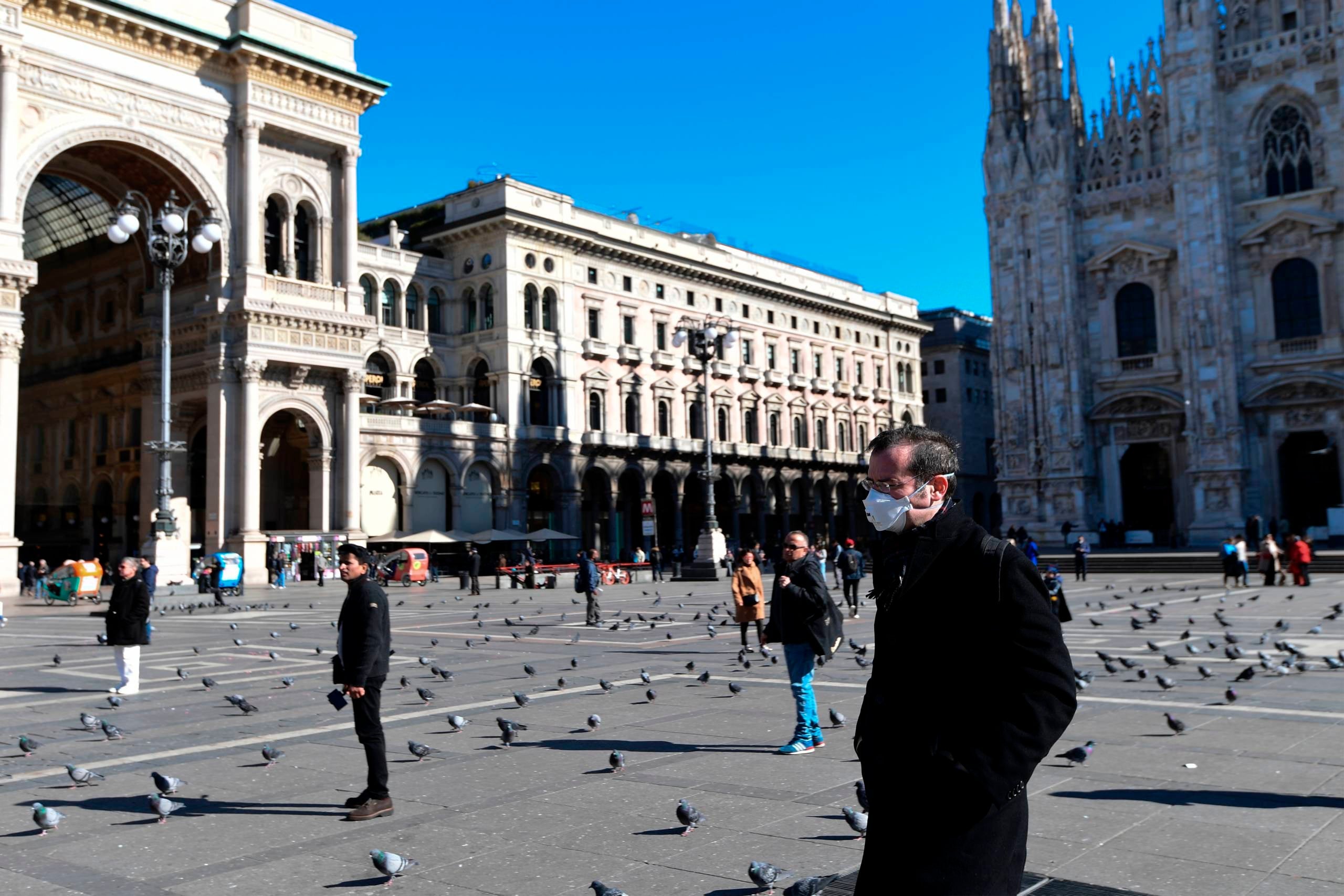
But new reports suggest the implications for business travelers may be even more significant. On Friday, Business Insider reported that Amazon had urged its nearly 800,000 employees to avoid all nonessential domestic and international travel. Google, another tech behemoth with over 100,000 employees, is forbidding employee travel to China, Iran, Italy, Japan and South Korea after an employee tested positive for coronavirus in the Zurich, Switzerland office.
In addition to limiting individual employee travel, these major companies — which can spend hundreds of millions of dollars on corporate flights, according to The Verge — are cancelling and pulling out of major events worldwide, which could have even more consequential and long-term ramifications for the industry.
Related: Major events and festivals canceled due to coronavirus fears
Last week, ITB Berlin, one of the largest travel trade shows to take place every year, was canceled. Over 160,000 visitors and exhibitors were expected to attend. Mobile World Congress (MWC), the host of the world's biggest phone show, canceled its scheduled February convention in Barcelona. Other cancellations and postponements have swept the planet, affecting everything from tech forums and conferences to major sporting events, international festivals and more. Even the 2020 Summer Olympics in Japan could potentially be canceled as fears of COVID-19 spread.
But for leisure travelers, finding a comfortable way to continue traveling at a time of significant uncertainty may simply mean staying closer to home.
"I actually have two flights to the East Coast booked for the next couple of weeks," Samantha said. "So I'd say I'm not really anxious — at the moment — about future travel within the U.S."
Feature photo by Ivan Abreu/SOPA Images/LightRocket via Getty Images.
TPG featured card
at Capital One's secure site
Terms & restrictions apply. See rates & fees.
| 5X miles | Earn 5X miles on hotels, vacation rentals and rental cars booked through Capital One Travel |
| 2X miles | Earn unlimited 2X miles on every purchase, every day |
Pros
- Stellar welcome offer of 75,000 miles after spending $4,000 on purchases in the first three months from account opening. Plus, a $250 Capital One Travel credit to use in your first cardholder year upon account opening.
- You'll earn 2 miles per dollar on every purchase, which means you won't have to worry about memorizing bonus categories
- Rewards are versatile and can be redeemed for a statement credit or transferred to Capital One’s transfer partners
Cons
- Highest bonus-earning categories only on travel booked via Capital One Travel
- LIMITED-TIME OFFER: Enjoy $250 to use on Capital One Travel in your first cardholder year, plus earn 75,000 bonus miles once you spend $4,000 on purchases within the first 3 months from account opening - that’s equal to $1,000 in travel
- Earn unlimited 2X miles on every purchase, every day
- Earn 5X miles on hotels, vacation rentals and rental cars booked through Capital One Travel
- Miles won't expire for the life of the account and there's no limit to how many you can earn
- Receive up to a $120 credit for Global Entry or TSA PreCheck®
- Use your miles to get reimbursed for any travel purchase—or redeem by booking a trip through Capital One Travel
- Enjoy a $50 experience credit and other premium benefits with every hotel and vacation rental booked from the Lifestyle Collection
- Transfer your miles to your choice of 15+ travel loyalty programs
- Top rated mobile app

